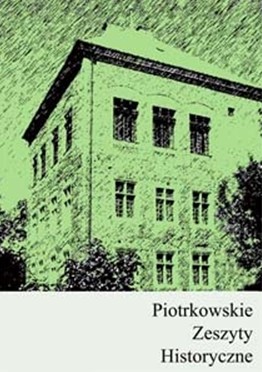Uzurpacja Hypacjusza i rola cyrkowych stronnictw w późnoantycznej praktyce politycznej Cesarstwa Rzymskiego
The usurpation of Hypatius and circus factions role in a political practice of the Later Roman Empire
Author(s): Łukasz SmorczewskiSubject(s): Social history, Ancient World
Published by: Instytut Historii UJK - Filia w Piotrkowie Trybunalskim
Keywords: factions hipodrom; revolt; the Later Roman Empire; Hypatius
Summary/Abstract: The main aim of my study is to evaluate notions on circus factions commitment in so called Nika Riot which occurred in Constantinople on early January 532 A.D. City disturbances had shaken a regime of emperor Justinan I and showed how surprisingly easy imperial government could be overthrown. Although modern scholars examined influence as well as participation of faction members in Nika Riot that particular factor should be once more revaluated. I tried to pre-sented a structure of circus factions in a more broader context. Their evolution during the period of Late Antiquity was an effect of state reform. It clearly shows that these organization shouldn’t be treated as a quasi-political party which protected interest of different social groups. It could be assumed rather as a hooligans fan clubs, as stated A. Cameron, connected with local elite on the base of patronage bond. Furthermore the background of Nika Riot were definitely more com-plex than conflict between imperial authority with faction leaders. A person who played a key role in Constantinople uprising was Hypatius, nephew of deceased emperor Anastasius I. Highly influ-enced dignitary was later blamed by emperor Justinan for inspiriting rioters. However literary sources are not unambiguous to the actual role of Hypatius in Nika Riot. G. Greatrex proposed hypothesis about authorities provocation in which nephew of former emperor took part. Because of Justinian hesitation Hypatius gained support of a few members of Constantinopolitan senate that changed crowd violence into usurpation. It finally sealed a faith of Anastasius relative. The disturbances made by faction supporters – Green and Blues, had become merely a pretext for the outbreak of popular discontent inhab-itants of Constantinople, due to lack of consistency in action and sometimes indolence of government.
Journal: Piotrkowskie Zeszyty Historyczne
- Issue Year: 17/2016
- Issue No: 2
- Page Range: 9-24
- Page Count: 16
- Language: Polish

